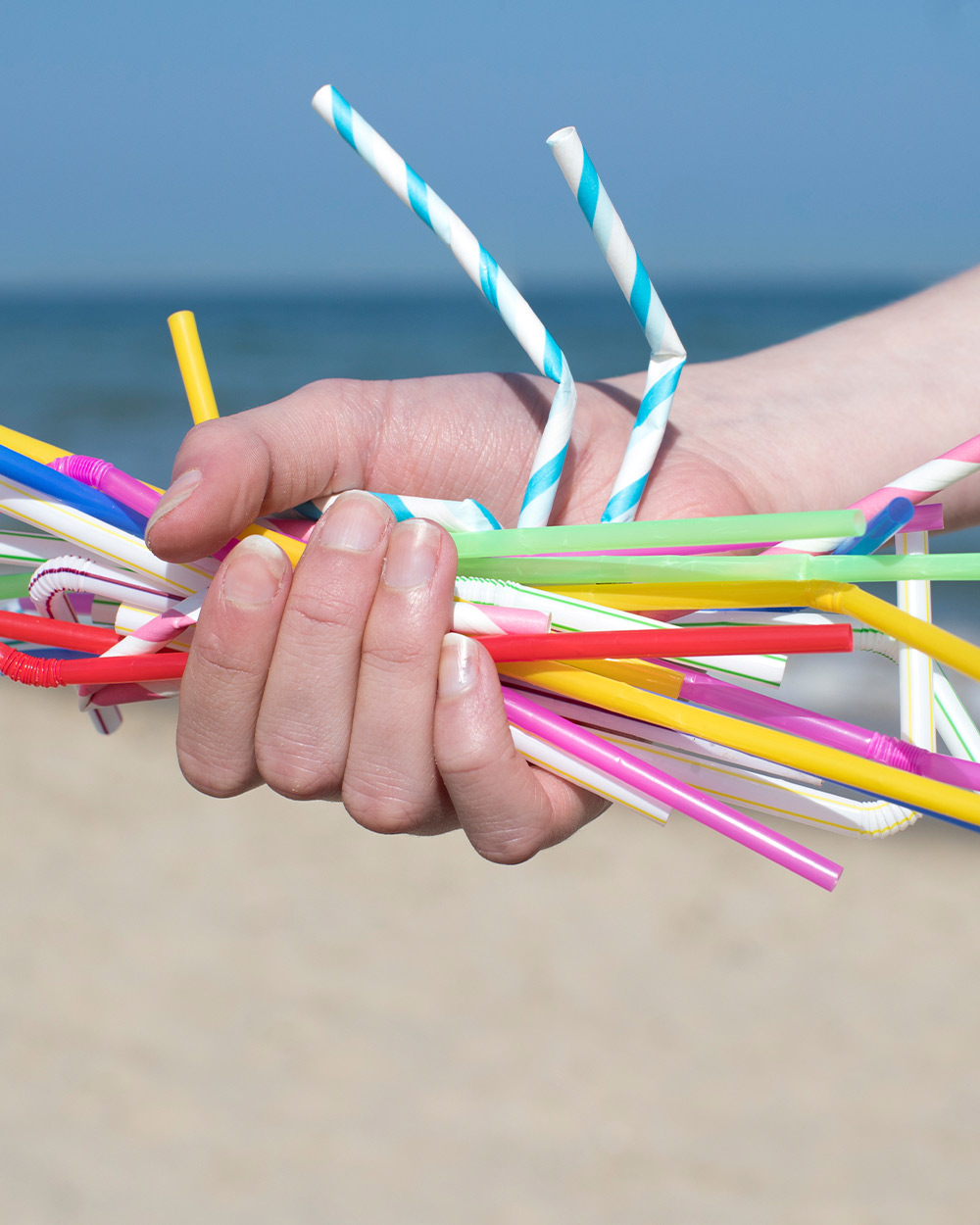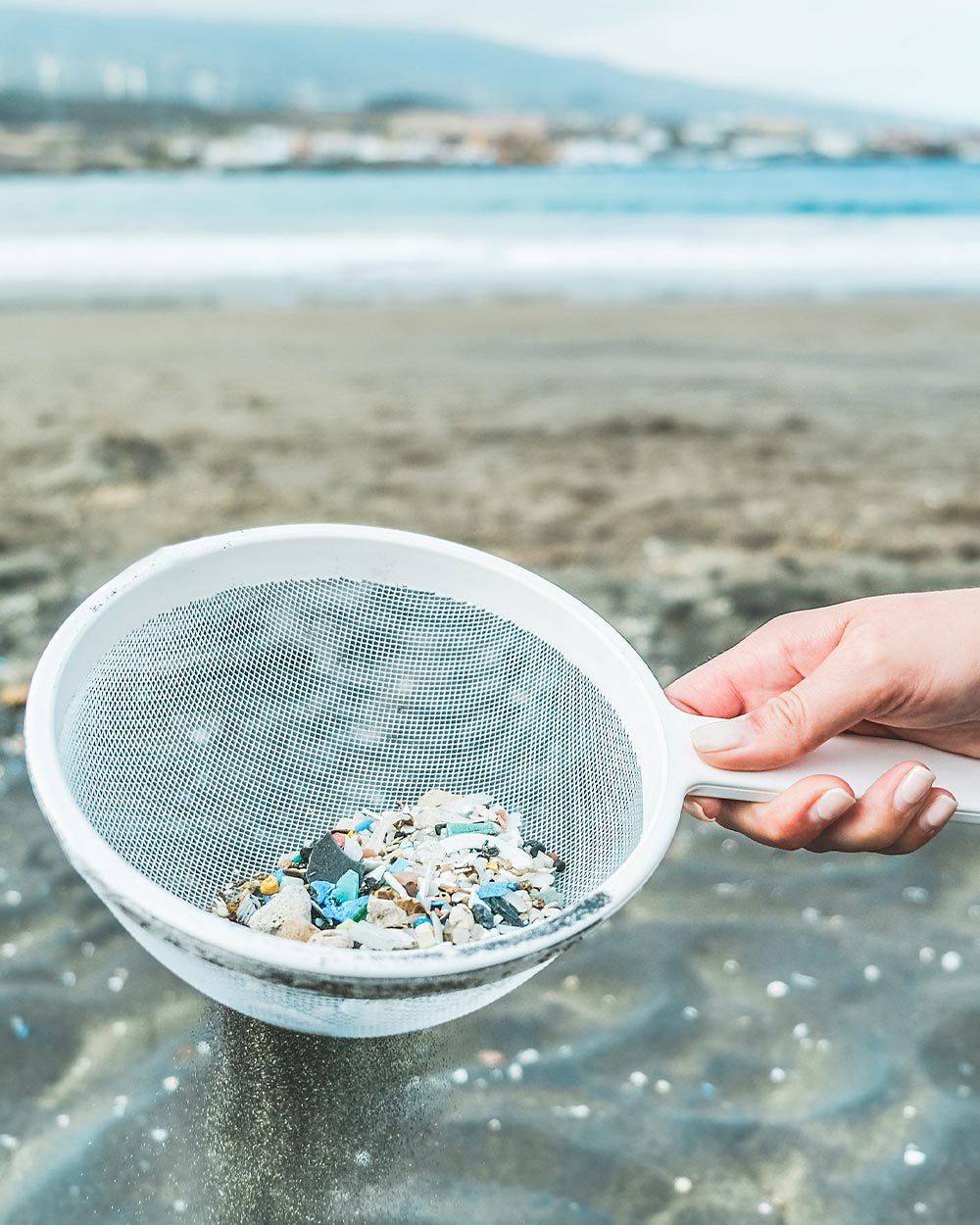
10 Steps You Can Take to Reduce Plastic Straw Pollution
Plastic straws are a ubiquitous item in our daily lives, but the ease and convenience of using them comes at a high cost to our environment and wildlife. These items are a major contributor to plastic pollution, both on land and in the ocean, causing harm to wildlife, marine animals, and our ecosystem, The Sandbox News reports
Here’s more on why it is crucial for us to reduce their use.
Plastic Straws are Non-Biodegradable

Plastic straws will not break down in the environment.
According to the Association of Zoos and Aquariums, one of the primary dangers of plastic straws is that they are non-biodegradable. This means that they will not break down in the environment, but instead will persist for hundreds of years. As National Geographic reports, plastic straws are often mistaken for food by wildlife, such as sea turtles, which can ingest them and suffer injury or death. Additionally, plastic straws can entangle marine animals, causing suffocation and drowning.
Plastic Straws Contaminate Our Oceans

Plastic pollution can harm phytoplankton, which are the base of the ocean food chain.
Plastic straws are a major source of ocean pollution, with billions of them ending up in our oceans every year. The plastic in the ocean is not only a hazard to marine animals but also to the delicate balance of the ocean’s ecosystem. Plastic pollution can harm phytoplankton, which are the base of the ocean food chain, and disrupt the transfer of nutrients and energy throughout the ocean, National Geographic reports.
Plastic Straws Threaten Biodiversity

Plastic pollution in the ocean can harm a wide range of marine animals, including seabirds, fish, sea turtles, whales, and dolphins.
According to CNBC, the widespread use of plastic straws has a significant impact on the biodiversity of our planet. Plastic pollution in the ocean can harm a wide range of marine animals, including seabirds, fish, sea turtles, whales, and dolphins. Plastic straws can also have a damaging effect on coastal ecosystems, such as coral reefs and mangroves, which provide habitat and food for many species of wildlife.
Reducing the Use of Plastic Straws

Plastic straws are a ubiquitous item in our daily lives, but the ease and convenience of using them comes at a high cost to our environment and wildlife.
To reduce the impact of plastic straws on our environment and wildlife, it is crucial for individuals, businesses, and governments to take action. One of the easiest ways to reduce the use of plastic straws is to switch to reusable alternatives, such as metal or paper straws, NationSwell reports. Another way to reduce the use of plastic straws is to simply say no to single-use plastic straws when ordering drinks at a restaurant or café.
Here are 10 more steps you can take to help reduce plastic straw pollution.
10. Say No to Plastic Straws
The easiest way to reduce plastic straw pollution is to simply refuse to use them. Ask for your drinks to be served without a straw or bring your own reusable straw.
9. Use Reusable Straws
Reusable straws made from materials like stainless steel, glass, and silicone are a great alternative to single-use plastic straws. They are durable, easy to clean, and can be used time and time again.

The easiest way to reduce plastic straw pollution is to simply refuse to use them.
8. Choose Restaurants and Cafes that Don’t Use Plastic Straws
Look for restaurants and cafes that have pledged to reduce their use of plastic straws or offer alternative options. Support these businesses and encourage others to do the same.
7. Educate Others
Share your knowledge and educate others about the dangers of plastic straws and the impact of plastic pollution on the environment and wildlife.

Share your knowledge and educate others about the dangers of plastic straws.
6. Support Legislation
Support legislation aimed at reducing plastic pollution, including bans on single-use plastic straws.
5. Proper Disposal
Make sure to properly dispose of any plastic straws you do use, so that they do not end up in the ocean or other waterways.

Be sure to properly dispose of any plastic straws you do use, so that they do not end up in the ocean.
4. Participate in Clean-Up Efforts
Join local beach clean-up efforts and help remove plastic pollution from our oceans and waterways.
3. Vote with Your Wallet
Support companies that have pledged to reduce their use of plastic and invest in sustainable alternatives.

Join local beach clean-up efforts and help remove plastic pollution from our oceans and waterways.
2. Advocate for Change
Advocate for change at a local, national, and global level by speaking out against plastic pollution and the harm it causes to the environment and wildlife.
1. Be a Good Role Model
Lead by example and inspire others to take action. Make reducing plastic straw pollution a priority in your life and encourage others to do the same.

Plastic straws eventually turn into microplastics that pollute the environment.
Plastic straws pose a significant threat to our environment and wildlife. They are non-biodegradable, a major source of ocean pollution, and threaten biodiversity. It is crucial for us to take action to reduce their use and switch to more sustainable alternatives. By making small changes in our daily lives, we can help to protect our planet and preserve its wildlife for future generations.
Take the plastic straw pledge and help us stamp out this pollution!